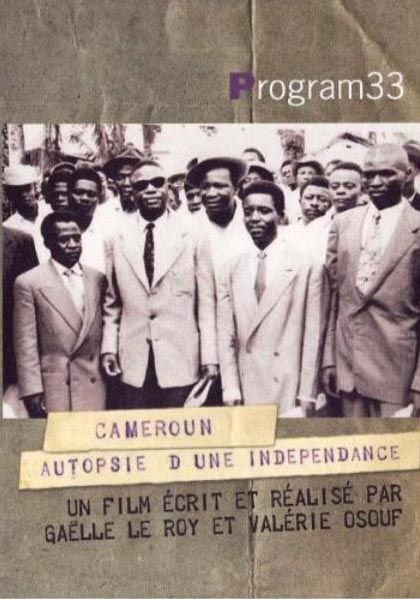Cameroon, Autopsy of an Independence
Program33 / France 5 / TSR / RTBF.
Audience Award, Festival International du Film d’Histoire de Pessac.

Right after Germany’s defeat during the first World War, the Society of Nations (SDN) placed Kamerun under the trusteeship of France and Great-Britain. Forced labor and the hardship during the construction of the Douala-Yaounde railroad marks the birth of a structured movement of resistance to the oppressor. In 1948, the French army started a terrible repression against the UPC (a very popular separatist party), which was created the same year. Ten years later, UPC party leader Ruben Um Nyobe is murdered in the bush.
Pierre Messmer, Jacques Foccart, De Gaulle, Gaston Deferre will call upon the 22nd RIC troops – also notoriously called the “Viets breakers”. The colonial commandos will put up an incredibly brutal fight against the guerrilla. Helicopter air strikes and use of napalm gas will spare none. This is Indochina veterans playing a pre-Vietnam war game.
On the day of Independence, January 1st, 1960, France and Cameroon sign a secret pact for military assistance.
While the methods changed, independence never meant the end of the exactions but rather it marked the beginning of massacres in Cameroon. Succeeding the spread of napalm gas, a period of terror began: populations were gathered, torture camps organized, and hundred of Bassa and Bamileke villages were systematically burned down. The French press, rendered silent and blind by the Algerian crisis will not publish a single word on this terrible repression.
In his historical speech during the Conference de la Baule on June 21, 1990, Mitterrand’s conditions for French assistance to Cameroon and other Francophone African countries is the institution of a multiparty system.
This date may be considered the stepping-stone for the end of the bloodshed in Cameroon even though the country’s jails are still packed with political prisoners. Today, corruption and a code of silence rule.
The situation in France vis-a-vis its colonial past is peculiar. France has so far only paid lip service to efforts at dealing with this part of its history. Little effort has been made to research and teaching programs, memorial sites etc, all means to go beyond the simplistic cleavage of guilt and pride it usually implies. With this film, we will travel to the heart of a taboo of French colonial history, we will reflect on an unfamiliar focal point of our contemporary History. Our goal is to better define what constitutes the backbone of the “colonial fracture.”
- Image : Gaëlle Le Roy
- Sound : Valérie Osouf
- Editing : Ruben Korenfeld
- Production : Christine Doublet et Fanny Glissant pour Program33

